Sometimes I worry that my essays will not speak to the needs of this community. More specifically, my worry is that only a small number of participants will find value in what I say. One reason I suggest that possibility is how strongly I now identify as a woman. Some readers probably would admit that they (i) do not identify as women, (ii) do not believe a “man” should ever to allowed in women-only spaces (thereby admitting that either they see themselves as a man or don’t mind violating their own views on the subject when they need to use a bathroom or changing room), (iii) believe they are appearing as women as a form of personal or artistic expression, or (iv) are still exploring their identity and cannot decide how they identify. As someone who identifies as a transgender woman, I may therefore be a minority within a community that is itself a minority of the general population.
If you have read what I have written lately, you will know that I am happily married (we are in our fifth decade), and that I live about half my life as a woman. Because I am married, and my wife does not identify as a lesbian, I cannot be myself around her or in social circles we frequent together. Therefore, I cannot change my “sex” on any legal document and remain married. I would rather die than give up my amazing life partner, so that isn’t going to happen. Still, I need to feel whole, and for that reason I am on female hormones. The result has been amazing, and I do not ever want to go back to a life without them. The changes the hormones have wrought mean I cannot safely change clothes in a male changing room. Moreover, I feel discomfort when using a men’s bathroom, even when appearing as a male. It feels like a microaggression from society, yet I soldier on, using only stalls and trying to get in and out as quickly as possible. A toilet is after all just a toilet, I remind myself, wherever it may be. I also admonish myself that when you have to go, it is wisest to choose the least worst option rather than suffer renal failure!
When I am in a women’s bathroom or in a women’s changing room or in other spaces intended or specified as “women-only,” I am always deeply respectful. Why wouldn’t I be? If I want to be accepted, I must accept an extra burden to go above and beyond. That means never showing the part of my body that would be out of place in those spaces, much in the way that one might hide a mangled limb not out of embarrassment, but simply to avoid causing another person discomfort. To be clear, it would do violence to me under these circumstances to insist that I use only changing rooms and bathrooms that align with my legal documents even when it is Lisa who is going to the bathroom or doing the changing. And if I were to be sent to a jail for any reason, I would expect to be in a space for women or (at a minimum) a space where I am segregated from men. Otherwise, I would be in danger. Anyone thinking otherwise is either being unrealistic or completely calloused.
Yet, the messaging I am getting from society in general these days is that I am violating a basic law of the universe by living as I do. Many individuals focus on biology, forgetting that biology is complex, including not only reproductive organs, but also the brain, the genetic code, the ways the genetic code “signals” the brain and the body, and the development of a person from birth to adulthood. They throw around the word “biology” as if it is binary, fixed, and immutable. None of us are the same “person” today as we were at birth. We have lost all those cells and have created new ones. Some of us have had to have joints replaced and organs removed, and some of us have undergone cosmetic surgeries. Focusing on just the reproductive organs as reflecting a person’s “biology” is overly simplistic. Most importantly, for me that argument completely ignores the way my own brain has developed, and the way that my body has responded to my brain. I object vehemently to characterizations (or should I say “mischaracterizations”) of my identity as objectionable. I am a human assigned male at birth due to one (observed) exterior sexual organ. I do not identify as a male. I am so much more than a single organ, which is only a small lump of flesh and blood. Let me add my opinion that focusing on that single organ fits neatly into a misogynistic view of our world. Everything gets defined by that organ and the power it gives to anyone possessing one. No wonder all the gender identity issues today focus on transwomen, not on transmen. No one is horrified at the thought of a “woman” invading a male-only space, but people are outraged about the thought of a “man” invading a woman-only space.
Because I know some readers here do not believe a “biological male” (their term) should be allowed into women’s-only spaces, I would love to hear arguments for why you think that way. You would be surprised how many of those arguments are rooted in a sense that males are superior to females. The arguments often devolve to something akin to “males are the predators in our society” (and so women need a place safe from men), or that women who have been abused by a male need a safe space away from males (may I raise my hand here, as someone who was physically abused by a male and needs the same kind of safe space, if what society is creating is a safe space from predators?), or that “God created only males and females” in the Hebrew Bible (thereby establishing the gender binary, not only for society but for each individual person, forever). An offshoot of this final argument is simply the “argument from biology,” which I challenged earlier in this essay as impossibly simplistic and deterministic. In any case, I am well endowed (!) with the mental faculty to take on these arguments. I must, because presented as they are and with the results they intend, they damn me forever.
You may remember that I have stopped using the term “passing” as it relates to my identity and refer now to my “acceptance” by others. I don’t like the term passing because it sounds like I am trying to assume an identity that doesn’t belong to me. But I am not trying to pass myself off as anything other than myself. Let me underscore the point: I am not a “male” trying to pass as a “female” so that I can “invade” women’s spaces. When people accept my identity, I feel good. I have been fortunate for the past six or seven years to receive acceptance, which means that I use women-only spaces safely and without objection, with cisgender female friends and strangers alike. My hormones have given me more confidence, which serves as a strong feedback loop for acceptance. And I know that the hormones have turned on and turned off different cell signals in my body – all of which results in greater acceptance.
Lately, I have been reading again a book first published in the early 1960’s called “Black Like Me.” It is about a civil rights reporter who decided he needed to have a “real life” experience as a Black person, if he was going to write honestly about what it was like to be a Black person in America before the Civil Rights Era. With the help of a dermatologist, he took medication which, when combined with ultraviolet light, turned his skin dark. He enhanced the look with dye and by shaving his head so his hair wouldn’t give him away. In other words, instead of a Black person “passing” as white, he was a white person “passing” as black. I was fascinated to read again his reaction to seeing himself in the mirror for the first time with dark skin. He describes seeing in the mirror the face of a stranger. “He in no way resembled me – the transformation was total, shocking,” said the author (John Howard Griffin). He went on to say that he had expected to see himself disguised, but he felt imprisoned in the flesh of an utter stranger with whom he felt no kinship. He indicated that even his senses went through a change so profound that it filled him with distress, and his inclination was to fight against all those feelings. He knew with certainty that there is no such thing as a disguised white man, when the black won’t rub off. The completeness of the transformation appalled him. He became two men: the observing one and the one who felt “negroid” (his term) into his depths. He immediately felt lonely, because the person he knew was now hidden within the flesh of another.
As I read those words again, I was struck by how honestly they reflect the feelings of someone forced to live an identity that is not their own. If anyone reading this essay wonders where they fall on the transgender spectrum, I suggest that they reflect on those words and see if they have ever accurately reflected how they feel when they express themselves as a woman. A person who strongly identifies as a male, if forced to live full-time as a woman, would be horrified by the prospect. It would go against everything they know about themselves. They might be willing to be on stage for a night, or allow themselves to express some feminine sentiments, or briefly wear clothing they enjoy, but they couldn’t imagine being put in a position where they couldn’t take off the costume and return to being “him” whenever they wished. Psychiatrists once required a real-life test for transfeminine males who wanted to transition for this exact reason. They wanted their patients to see for themselves what it felt like to be unable to change back. I believe reflecting on the question can help all of us think through where we land on the transgender spectrum. There is no wrong answer. Presenting the extremes is an exercise used to help with self-discovery, not a litmus test for where anyone belongs.
For the record, I absolutely love being able to express myself fully 24/7, and I have done so for a month or more at a time on more than one occasion. I find that I have a bit of depression when I am forced back into my 50/50 lifestyle after these periods, although I dash the depression by reminding myself why I make that sacrifice. I love my wife and family and value the part of myself that prioritizes them. Still, my truth remains: I am naturally a woman.
Now perhaps you better understand why I like the word “acceptance” rather than “passing” and why I am strongly opposed to efforts to prevent transgender women from using the facilities that are safest for them, both physically and psychologically. Those who think of their own gender as immutable in the same way that John Howard Griffin thought of his race will never understand me. From them, therefore, I ask for understanding and a willingness to hear my personal story. If they will listen, perhaps their opposition will fade. And you, dear readers, I would ask only that you continue to examine your own views, stay true to yourself and be kind to others.


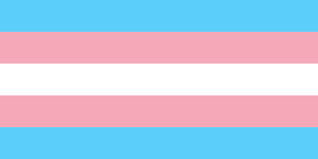
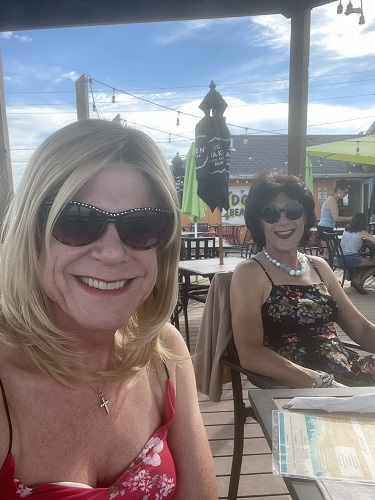

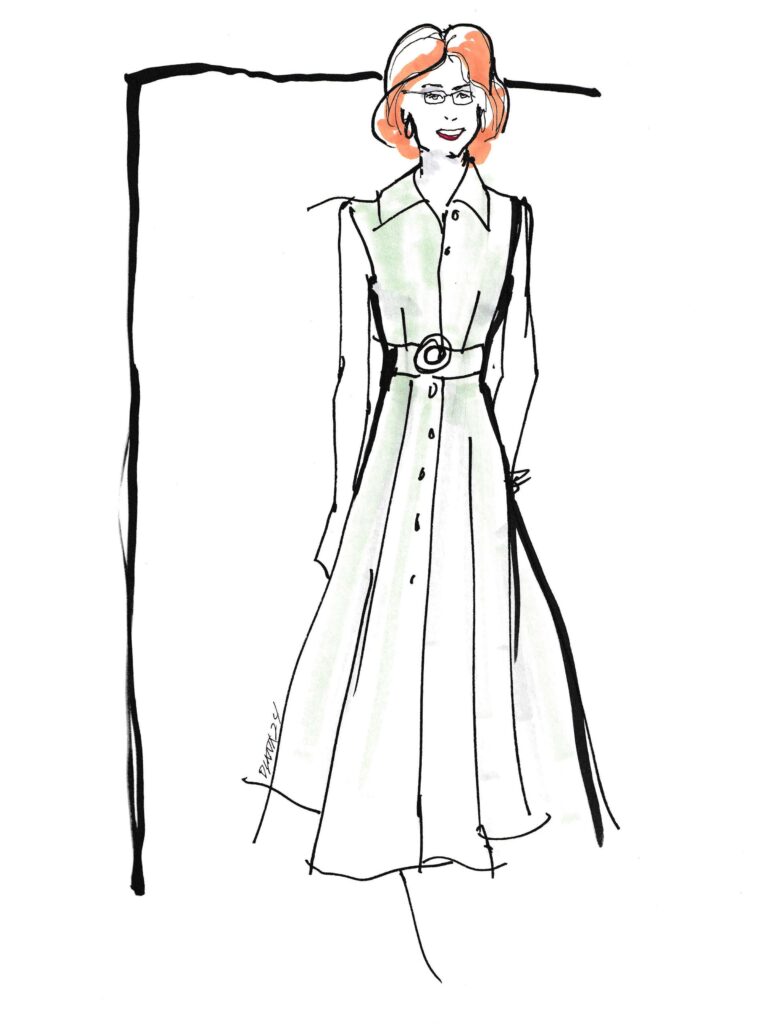

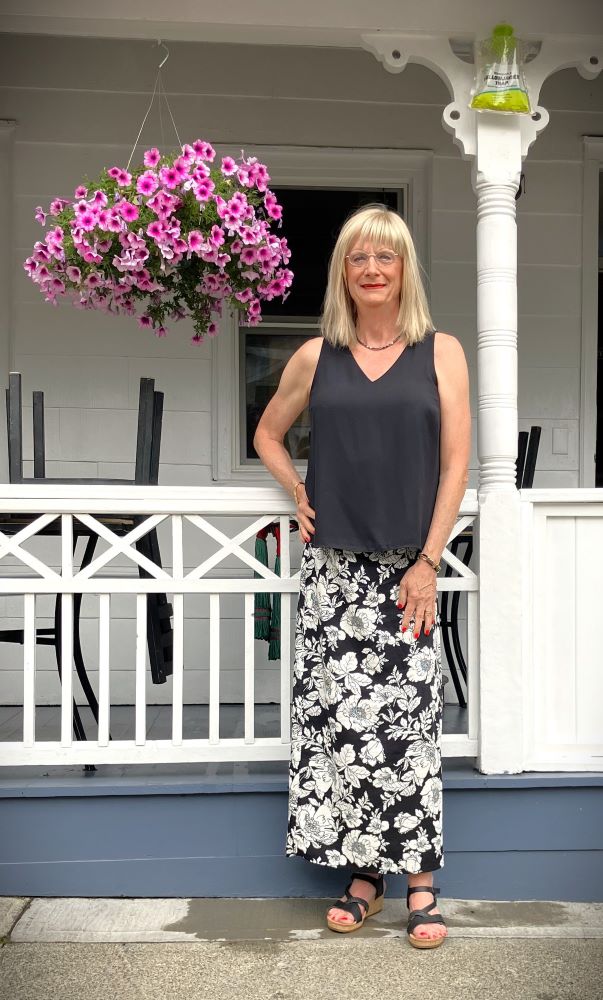
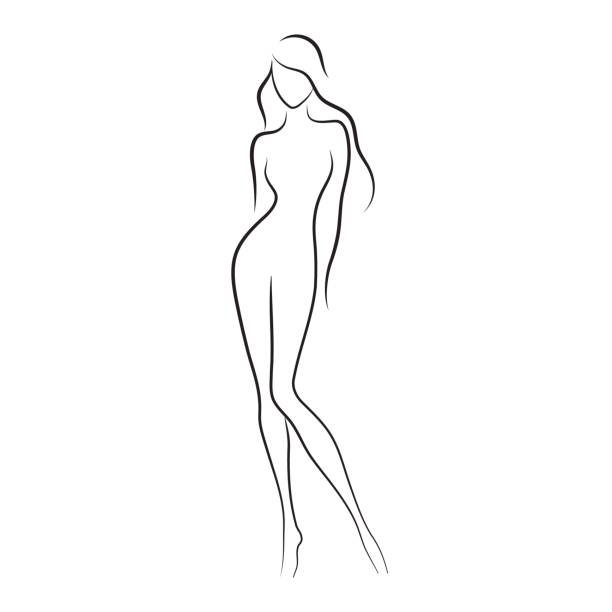
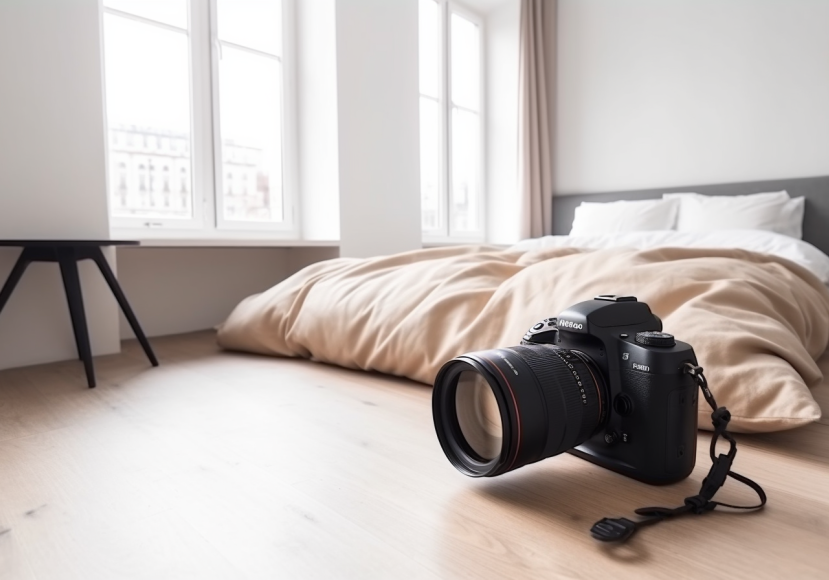


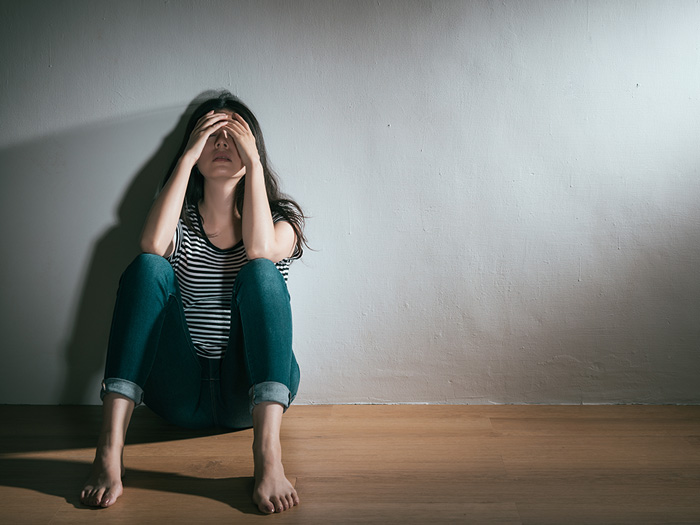
32 Responses
Lisa,
What a powerful and thought provoking post. Thank you for giving this to us.
Your insightful statements of your life are most revealing. Through it all I sense your pain and frustration. You clearly understand who you are, and you want all of society to accept that.
This essay gives a different perspective than most posts here on Kandi’s Land. Thank you. You have given us a look into your mind and soul. I really appreciate, now, knowing you a little bit better.
I agree with your excellent points and how you explain gender identity. We would all be better off if everyone would accept each other for who we/they are.
I feel your joy and suffering. And I know you are deeply loved by so many people. Please keep providing posts so we may understand more about this important topic.
Jocelyn
Lisa, as Jocelyn says, a powerful and thought provoking post. However, at the risk of being excommunicated from the community, let’s just say that my opinion differs! In fact, I have a post in the works about this, I’ve just not been brave enough to send it to Kandi for posting yet.
There’s a huge danger that we live in a self-defined ‘bubble’. We self-identify and declare that we should now be recognised in a way consistent with our self-identification. ‘Ah yes’, the counter argument goes, ‘I’ve been officially diagnosed as transgender so you ‘Amanda’ are wrong’. But there are two issues there; the first is that that diagnosis was sought (and, taking a cynical view can be ‘gamed’) and can only be arrived at through conversation with a practitioner who suppports the ideology and secondly, it changes nothing other than giving us reassurance – it doesn’t magically change us. Now I want to be clear at this point that I view anyone who has to live with gender dysphoria with a huge amount of compassion and sympathy and respect their right to live however they want to live. But the problem that we all face is that society has to ‘buy in’. And therein lies the root of the problem.
This brings me onto your point – ‘Some readers probably would admit that they (i) do not identify as women, (ii) do not believe a “man” should ever to allowed in women-only spaces (thereby admitting that either they see themselves as a man or don’t mind violating their own views on the subject when they need to use a bathroom or changing room)… ‘. Guilty as charged but consider this scenario. Under the law, a man who ends the life of his terminally ill wife who screams out in pain every day and begs him to help her is guilty of murder. So is the thug who beats up a man and kills him. But there is inherent compassion in how the law is applied and the sentences for the two scenarios would be very different. To pass a law that says that anyone identifying as female can use female facilities would lay things open to abuse and so women need protection. Like you, I would be fearful of using the gents’ while dressed and so, whilst I try to organise my outings around not needing to use the ladies’ I accept the risk and hope for compassion and understanding if I do need to go.
I would also contest your assertion that ‘..many of those arguments are rooted in a sense that males are superior to females.’. There are elements where males do have superiority over females – strength being the prime example – but that doesn’t make females inferior per se, it just means that the law needs to provide protections for them. Of course, go back one hundred years or so and things were very different (and still are in certain cultures) and it is somewhat ironic that the rights that women fought so hard for are now being challenged by ‘biological males’ (sorry!) who gave them the concessions in the first place!
In many respects, we only have ourselves to blame for the situation we now find ourselves in. Instead of listening to objections and providing a counter argument, we branded dissenters as TERFs and silenced them by threat. And when JK Rowling and others like her spoke out on behalf of women, we branded them transphobic and subjected them to abuse that no human being, good or bad, should ever be on the receiving end of. We mangled the language; words like ‘woman’ and ‘mother’ were banished from officialdom, replaced with truly repulsive and demeaning terms but allowed ‘woman’ to appropriated by anyone who so identified. Is it surprising that people are finally waking up?
But having had my rant, I want to finish on a concilitory note. The whole situation is a complete mess and it breaks my heart to see what has happened to the vast majority of trans folk who want to live a genuine life and be no trouble to anyone. Every one of us here enjoys acceptance wherever we go for the simple reason that we try our absolute hardest to fit in. We understand that acceptance has to be earned, not demanded, and we also know that that acceptance can be taken away as quickly as it is bestowed. I personally don’t know what the answer is – we’ve seen the consequences of a free for all and we’re now seeing the consequences of a clamp down. In the UK, we have GRCs which have inherent ambiguity over the rights they actually give but even resolving that particular issue wouldn’t help people like me who do not wish to go down that route. In the end, I feel that the restrictions I face are a small price to pay for the widespread acceptance that I personally get when I go out and about and I try to show my respect to women both by trying my hardest to conform and by respecting the boundaries that, whether I like it or not (I don’t!), my biological sex has created.
In the end, Lisa, you do you. it’s your life and you deserve to be happy. Please just don’t call me a TERF!!!!
Amanda,
TERF is an acronym I had never heard of before. And after looking it up online and reading the explanation, I still have no understanding. I am so confused and simple minded.
But, I don’t want to understand it. I love living in my simple and plain world. I just want to enjoy life and myself. I want everyone to enjoy life.
Love,
Jocelyn
Jocelyn, I’m relieved that it’s not a term in your lexicon – it’s a truly horrible descriptor and one that, as a community, we’d be far better off living in ignorance of!
And who could argue with your second paragraph – it’s really all that matters in life!
Jocelyn,
I am glad folks on this side of the pond are getting educated on TERFs. I know Amanda hates the term, so I won’t say more right now, except that everyone should know that there are self-avowed feminists who do not believe transwomen ahould have the same rights as other women.
Also, thank you for your continued kindness. You always give me more credit than I deserve. Since you are a bit older than me, I feel comforted to have your respect.
Lisa
Amanda,
My intention was to provoke thought, and I apparently struck a nerve. I hope you didn’t just jump in the air, but are also spending some time reconsidering some of your assumptions.
I will comment on just one of your points directly: that men have inherent superiority over women in strength. I asked my wife her take on this and she had a terrific response, so I will use hers rather than my own. She had three important insights. First, a broad statement like that ignores individual variability. Second, it is not scientifically accurate, as “strength” can be measured in many ways (more than simply to be able to lift a certain amount of weight or have the ability to develop musculature in certain areas). Third, and perhaps most significantly, it defines “strength” in a limited way, ignoring for example endurance as an inherent type of strength. The problem is that too often we use our own observations to make generalizations. And I would further argue that the strength argument can lead men in particular to limit the roles women can have in society (hence my concern about implicit misogyny).
My goal, however, is not to change this sharing forum into a debating hall! I will read your post on the subject with interest, and an open mind. You already know that in contrast to you, I am a person of faith, so I have researched this subject extensively over the years, as I have wrestled with my identity. And, for the record, no psychiatrist told me I was transgender. My UK psychiatrist was a private expert who I consulted only after wrestling with my transphobia. Her conclusions made me confront my own transphobia — she didn’t make me into a transgender woman. Again, I would urge avoiding generalizations that could lead one to be less open to individual variability.
You know how much I respect and appreciate you. So thank you for letting me give you this brief response. I would be happy to engage in a more vigorous debate offline, as I always enjoy listening and considering another point of view.
Cheers.
Lisa
Oooo – I love a vigorous debate! I’ll need to park it for a week or two as we’ve got an imending issue in the business which is demanding most of my time at present.
Just a couple of things to pick up on at this stage. Faith – you are correct about the fundamental contrast but that only really stretches as far as our respective beliefs. I certainly try to live my life by what some would call Christian values – honesty, integrity, compassion and so on so I don’t think we are so very different in that respect.
As for ‘strength’, it’s important not to get too tied up in semantics. I absolutely meant physical strength but we have to take it as read that there are plenty of women who are stronger than me because they exercise and I don’t! And I would also say that in my 24 year corporate career, the two best bosses I had were both women who were far stronger (in its more general meaning) than any of the men I worked for.
Interesting that you refer to wrestling with your transphobia. The question is whether denial, which is what I think you alluded to, is the same as transphobia? We can respect trans people in general while wishing we weren’t so afflicted.
Amanda,
Earlier in my life when I first married and started a family I did feel at times it was a curse but I didn’t realise the truth then . With the help of therapy it gradually emerges we are not afflicted , using that term suggests it’s an illness , something others hope can be cured . It can only considered an affliction because others don’t approve , the one aspect it manifests itself is in the guilt you talk about in your previous post .
Now I’m free to live my life as I choose I feel I’m blessed and certainly not afflicted .
Strength both physically and mentally is so important to a transgender person , I know how deep the situation can become , at those times very few are on your side you have to dig deep and find the way out yourself .
On the point of denial I have seen so many CDers wrap their lives up with denial , I know it can be so hard to accept the truth when close family and friends impose your denial . Part of the process of transition is overcoming that denial , sometimes it takes professional help to assist in that , the one thing I will say about that if the opportunity is offered take it , I can’t thank the NHS enough .
Lisa,
Lets consider ” Passing ” first . It is something so many get caught up on , I must admit it was often question I asked in the past . Perhaps if we reverse it and ask do I still pass as a man ? If no one points the finger accusing you of being a MIAD ( man in a dress ) then we are beginning to get things right . In this conversation we are only considering the binary situation , if I don’t look like a man then I must appear to be a woman . I know very few talk about non-binary and I admit I really don’t fully understand how it works .
Also your piece is written as a M/F transgender person , we hardly ever hear of people complaining about F/M invading a male space , is this really fair ? As you say we are simply dealing with the call of nature , what parts are involved is no one else’s business as long as we are allowed our privacy .
I do agree with your post and I value your input as a transgeder person who prefers to live as Lisa , I don’t feel we are a lost voice , it’s so good to have a spectrum of members , I believe I’m the only full time member here , come on girls it is possible !!
Our biology must be considered in it’s entirety , our brains dictate the way we choose to live our lives , our physical parts perform functions from the brain , we can’t change that and no matter how society tries they can’t either .
I can’t agree with Amanda’s suggestion that we brought many problems on ourselves , ignorance and a lack of understanding are the problems on both sides . I made it my first goal to try and undestand what makes us tick , in my case the years of internal strife had to have an explanation , I was born male so why do I have an overwhelming feeling I want to be female ? We really do owe it to ourselves to find some if not all the answers if you are to expect acceptance in society . We are not invading anyone’s space , yes the space round us is very precious I respect that for others as I expect respect for mine .
Again I must take up a point from Amanda . Yes we do self-indentify , it’s what humans do to establish themselves in society , it doesn’t mean those actions should be supported in law to gain acceptance . BUT saying that when I legally changed my name I signed two documents with my solicitor , one was my statutory declaration and the other a gender recognition certificate , which clearly states that I only be recognised legally as Teresa , any reference to my previous name should not be recognised . Just as a footnote when I applied for my new passport I had to sign a document saying I would not flip my indentity from one to the other . Which can’t happen anyway because I had to change almost thirty official documents to safeguard everything I owned . It could be risky to self indentify in these circumstances , you might find a house your thought you owned can’t be sold because the Land Registry is incorrect . The same could be said for your car , you find your insurance is invalid because the car isn’t officially owned by you .
Again I’m going to say the ( UK ) Supreme Court ruling was badly thought through , if safety was the paramount requirement then it managed to endanger more people . If we followed it’s guidlines I for one would risk being attacked using male facilities and I ask the question again where does it leave the F/M transgender community ?
Teresa,
Many good thoughts here. I have already written a new post (hopefully coming soon) to address one of the most important ones.
Self-identity has never been proven to be an issue. See Trish’s comment here about Canada. If there is harm to self-identity, you would see it manifest itself there. So while legal documents are great (as I said in one of my posts, I will be eternally grateful for BMO — a Canadian bank — for issuing me a credit card in my chosen name), they should not be required to use the loo!
Lisa
I think too many.of us make such a big thing of using the bathroom while being dressed in femme mode. I 1st went out in public in 1978 or 9. I can remember only one upsetting incident. I was on line in Macy’s waiting to pay for something. The cashier was very nice to me. There was a older Indian woman right behind me. She was listening to my conversation with the cashier. After I paid I needed to go to the ladies room which was close by. The Indian woman and her daughter followed me. I went into a stall to do my business and saw the woman and her daughter going down the aisle looking for me. I exited the stall and washed my hands. The woman and her daughter stared at me. I paid no attention and left the ladies room. That was the only bad experience I ever had regarding bathroom use. I have gotten stares which I ignore. I think too many of us worry about what strangers think of you. If I get a stare I just ignore and continue to enjoy going out as my true self.
Terri,
I wholeheartedly agree. I have been using ladies facilities for over thirty years in the US, UK and several other countries (so, thousands of times) with never an issue. I have always been respectful, and careful. Your experience is an important reminder. Even doing that, we should be prepared to be challenged. Interestingly, there have been numerous cases recently in the US where butch lesbians have been challenged for entering a ladies room!
Lisa
Amanda, on this statement
“But there are two issues there; the first is that that diagnosis was sought (and, taking a cynical view can be ‘gamed’) and can only be arrived at through conversation with a practitioner who suppports the ideology”
I completely disagree that a diagnosis can only be arrived through a conversation with a practitioner (this is gatekeeping). Only the individual knows what is going on in their head. I can assure you that anyone that is transgender will push back pretty hard on that.
-Christina
Christina,
Thank you for your thoughtful comment. We are adults (we would open up a can of worms if we added minors to the mix). As adults, we should be allowed to chart our own paths, seeking or ignoring guidance from others, and accepting the consequences for what we do (and don’t do).
Lisa
Lisa, right, only YOU the individual knows who your authentic self is. It might not be apparent initially, but can show itself over time.
-Christina
Christina, thank you for sharing your thoughts. My point about diagnosis is that it does require ratification from a practitioner. It’s analogous to us feeling unwell; we may suspect that we know what’s wrong with us but consult a doctor for a rigorous diagnosis. In many cases, we can’t access treatment without it.
Amanda, but unlike feeling unwell with a sickness with symptoms that can be physically diagnosed, a the practitioner can’t read your mind. That’s the difference. Like they can’t tell you, you ARE or AREN’T trans. Only “you” the person can declare it likely through rigorous introspection over time. But you are right on treatment in terms of estrogen. That said, one can be trans without taking estrogen. Some people have medical histories of blood clotting that would prevent it. They aren’t any less trans without estrogen. Anyway, I just wanted to add this perspective to the discussion.
-Christina
Lisa,
Yes, we are all different. First, I want to tell you I am envious of you. First, hair – oh I wish Kandi would find where my hair went (inside joke) and second on your women’s groups you have joined. Finally on your hormone use. I would love to go on hormones, but I have put my body through too much already to add anything else.
I feel I am bi-gender, and express both genders in my appearance. I have completed my ‘professional’ duties (as ‘male’) for today, so I am now working at home as my female self in my bra, mascara, eye shadow, rings, necklace, etc. When I look down all I see are my breasts, then hands with tiny rings and long exquisite fingernails, leggings and my pedicured toes. All signs of my maleness are gone and I feel whole. I also plan to take more steps to make it easier to look female.
Would I go completely female? Maybe, if I had real hair on the top of my head, but at the same time I will never be completely male.
Here’s another view on bathrooms. The “men’s” bathroom in a new sports complex has boxes in the stall where one can dispose of their feminine hygiene product.
Cali,
I love that you have figured out how to do you. We should all aspire to feeling free enough to express ourselves.
Funny that you mentioned hair. I did win the genetic lottery when it comes to my hair. My siblings all suffer from receding hairlines (including my sister, after menopause). My brothers had significant hair loss by the time they were my age. But I was starting to see the same effect until I went on estrogen. It was for me a miracle drug in helping me not only to keep my hair, but having it grow out more fully (with no recovery of what little I had already lost, however). Now I have to fight against my ego because I absolutely love my hair. I get compliments from other women all the time (young and old alike). Coming down to earth, however, my wife hates my long hair and gets especially upset when my hair gets down to my shoulders. I find that attitude ironic, because she always made negative comments when we were younger about baldness. She said she hoped I would keep my hair, because she thought men who were balding looked especially old. We all have our prejudices, even my wonderful wife!
Stay tuned. I am sure someone will have a post directed at hair. If not, I must write one myself one day.
Lisa
Hi Lisa,
I read your post with interest and believe it or not I read Black Like Me decades ago and it it one of the best books I’ve ever read. As you know I’m a crossdresser and that is it. I believe we have a far easier road than than Transgendered girls. Not so much from the early sixties to the late 1900’s.
As I said I am a crossdresser and a Canadian girl. In reading your post as well as several others from the USA I find a fairly large divide in the acceptance of the Trans and CD communities between Canada and the USA. In Canada it is against the law to do or say anything untoward about any LGBTQ+ communities. My girl friends here and I go shopping together twice a month and we go everywhere. When we’re shopping in the mall’s female clothing stores there is never any issue with us using the change rooms and it is not against the law to use the female washrooms. Our regular group consisted of I fully transgendered girl, two CD’s and two Cis girls.
We have been doing this for several years and we literally go every where. Malls, Costco (where I have a guy card and a card for Trish). I explained my situation and wanted Trish’s name and picture on the second Costco card and they knew I was a CD and still had no issues and had Trish’s card in a matter of minutes. We also go to building centres, Walmart, drugstores, and all restaurants in our city with never an issue, and also go to a regular pub for happy hours. For all this I thank the Canadian Government and the Canadian people who are all very open and accepting.
Lisa, I think once the governing regime in the USA is removed you should see a huge change in all that has gone on lately. All you sisters up here are praying for all of you. Have a great day girl.
Trish ❤️
Trish,
God bless Canada! Last week I met a gentleman from Vancouver who was in the US as a tourist. I wanted to hug him for still coming, and I told him so, because we still want our cousins to visit!
I love all the things you do with your friends, and how free you are to simply be yourselves. It costs society nothing, and means everything to each of you.
Thank you for sharing your experiences and for letting all of us know who are living in other places that are more restrictive what is possible if minds remain open.
Lisa
Your clarity around acceptance, identity, and living as yourself really hits hard. I love the way you lay everything out without apology. Essays like this are exactly why our community needs strong voices. Tt gives the rest of us space to breathe and connect.
Michelle,
“Space to breathe” is exactly what we all need. Life is stressful enough without wondering when we can safely take our next breath!
Lisa
Wow so many responses to your well written thoughts on this life we have
Myself I really thought going full time would be where I needed to be but once I went down that road it just didn’t feel right for me
While I have my bouts with dysphoria it’s never been that strong but like you I do identify much more as a women than I man
I’ve never really had strong male traits and growing up I knew there was something different about me as I observed the men in my life
Today I’m much more non binary and it’s worked well for me
I must present fully male around family but other than that I’m just me
When I go fully en fem I am careful if I must go into a ladies room and will do so but I understand to a point why some would say I’m violating their space
I believe 99 percent of trans women just want to be left alone it’s that 1 percent that our media an politicians always focus on
Yes I’m a trans women and it took me time to accept that and one thing I’m certain of we must support each other as best we can
I’m so grateful for Kandi and this place where we can share with each other
Thank you Lisa
Ps it would be so great to have someone like yourself to do things with. It’s so lonely out here
Rachael,
It sounds like you have found a good compromise. I would have to say that my compromise feels right at the moment, most of the time at least. In any case, I know how hard it is, particularly if you feel lonely.
In response to your 99% comment, I am not sure exactly who the 1% is (they aren’t on this website) and whether the number really is .0001%. I certainly have seen some crazy things at Pride parades—how many are TG and how many are drag queens I can’t say, but I do know their “theatre” creates a spectacle that can create a sound bite to scare people. I have a high tolerance and typically react with displeasure only.
In the long run, you should be able to live your best life. For me, right now, that best life is lived in stealth, making new cisgender female friends more easily than I ever imagined. As I mentioned in my post on using my voice, that was the game changer for me. Before I mastered my voice, I didn’t feel comfortable, engaging with people. Now I am known as a social butterfly. I find it interesting to observe that I never made friends easily as a guy. I think I always had the feeling that I was making friends with the wrong gender. And to stay married, there was no way I could make female friends as a guy (although I’ve always had strong female acquaintances).
Know that we are all proud of you finding a positive way to express your femininity. There is no right way to do that, as we all can observe in our cisgender sisters.
Lisa
“Oh Canada”?? Let’s not get carried away. The current Administration is against us and that will be an issue in 2026. I don’t think they even know about F to M. But the other party did us no good by pushing issues like girl’s sports that just outrages most folks. But in every day USA I just don’t see much difference than Canada. And I don’t see the average woman upset by us or our using their facilities-this is just contrived stuff for the 2026 terror campaign against us (safe places!!)
Also -where all of these so called medical experts who have now clammed up after previously supporting us? They are the ones who came up with Gender Dysphoria and why not stick with it now? It doesn’t matter that we had a penis at birth-it’s the brain .I bet most of you reading this felt strongly female as early as you can remember (4-6?) and the brain is the point we must continue to make if we can find some doctors who can take the heat
Emily,
Comments are always appreciated. It is always good to get a different perspective.
I don’t want to put heat on doctors. They have been getting attorney general subpoenas to disclose their patients names. My own endocrinologist moved to a different place to protect her practice. I don’t know if you are living in a place that is non-threatening, thereby making you more immune to what is said and done federally, but folks are legitimately worried. There is nothing like that in Canada right now.
This is not a political forum, so I will say little about the women’s sports issue except that it too has been politicized. Scientific findings are never the basis for the arguments. And people across the political spectrum have latched on to that issue as a way to divide and conquer.
In the end, we are laughingly harmless, but you would never know that reading the news sometimes. I just wish people would ask themselves a simple but serious question: where is the harm? Legislate against actual harm, not imaginary harm.
Lisa,
Sorry to sidetrack slightly but it is an interseting point about hair . You are partly enjoying the increase in hair growth through hormones , if I knew my hair would improve I might have taken that route . So I do have to rely totally on a wig 24/7 but I have never been questioned about wearing one , I think we might be surprsied how many women wear wigs . You may recall my comments a while ago when I was seen at my art group exiting the women’s toilets , a lady asked me directly if I had a penis and I said I didn’t . Perhaps if she realised a more direct question could have been about wearing a wig if she was looking for proof , I admit I have very few problems , sometimes it’s tricky as I wear hearing aids which can make glasses harder to slip on and off .
I don’t have any problems with making cisgender female friends , my voice isn’t good at times but it doesn’t stop me chatting ( far too much ) , it’s really getting the balance right .
Lisa , I really appreciate you tend your post and offer feedback to the comments members make , opinions are usually based on personal experiences . Some agree and some disagree as our circumstances are different but in sharing our views we may appreciate a different perspective , things that possibly might affect me may not be a problem to others .
Emily ,
I totally agree , when we live in a balanced , normal society people don’t make an issue over who uses the correct facilities .
The professionals haven’t so “clammed” up in the UK the government simply withdraws or reduces their budgets within the NHS , those services just shrivel up and die like a plant without water , it’s a great way for the government to make the transgender issue go away !
Teresa,
Thank you so much for adding a comment about your wig requirement. There are plenty of women who can relate. By sharing your circumstances, you are confirming the point of view we share: however you do it, go out and experience the world as a woman. If you are on the TG spectrum,you will definitely enjoy it.
Lisa
Lisa,
I consider myself very lucky I’m accepted enough to enjoy my decision . I know we talk of being on the transgender spectrum here but in everyday life I now give it very little thought .
Oh my, I am so late to this dance. I read the article right after it was published, but at that time, I was unable to comment . “I’ll write later,” I decided. Now with so many replies my thinking is overwhelmed.
Lisa has been kind to me in conversing privately & extensively. I have got to know her quite well through these conversation, much of them rooted in dealing with our trans womanhood in relationship to our shared faith in Christ. Therefore I hear what she has to say with deep respect, believing her thoughts are well worth my consideration as a sister in the faith.
Then Amanda chimes in and I find myself in agreement with some points she had made. Oh, and then there is; . . . and on and on it goes.
We all have our own thoughts on this subject. I suppose because though alike in so many ways, we are all unique in our own individual circumstances.
So my two cents worth and it is probably worth that or less, because I am not near as advanced on my journey as many of you are. But what I have found for myself is that my thoughts and opinions are so fluid as I discover more about who I really am.
I have yet to go public. For most of my life going public was the line for me. Dress privately but not publicly. Now publicly is a goal. I WILL venture out as myself.
HRT? Never. . . well, until recently. Now, maybe in micro-doses just to relieve the dysphoria. Honestly though that is just a story I am telling myself at this point. I truly desire the full affects.
Restrooms – well sure I will want to use the ladies’ room when I am out publicly. Why would a woman even consider using a men’s room? Except the law says I must because biologically I am male.
As a trans woman I am evolving. Becoming me is a very difficult undertaking, but undertake it I must.
Trans like you? No. Trans like me. I will go with that.
Kindly,
Charlene
Charlene,
Lovely to have your thought added to the many expressed here. Further to Kandi’s post dated today, my intention was not to incite war, but rather to facilitate discussion. And not from the perspective of politics, but from the perspective of our own individual experiences and reference points. Amanda has done that, and you have done that, which is why we can disagree but remain friends. It is Ok to challenge a long-held position of another, as long as we are willing to let them do likewise to our own long-held position. You have done that beautifully in your comment.
I have long held that we are more alike than different, but more different than we sometimes would like. Viva la difference!
Lisa